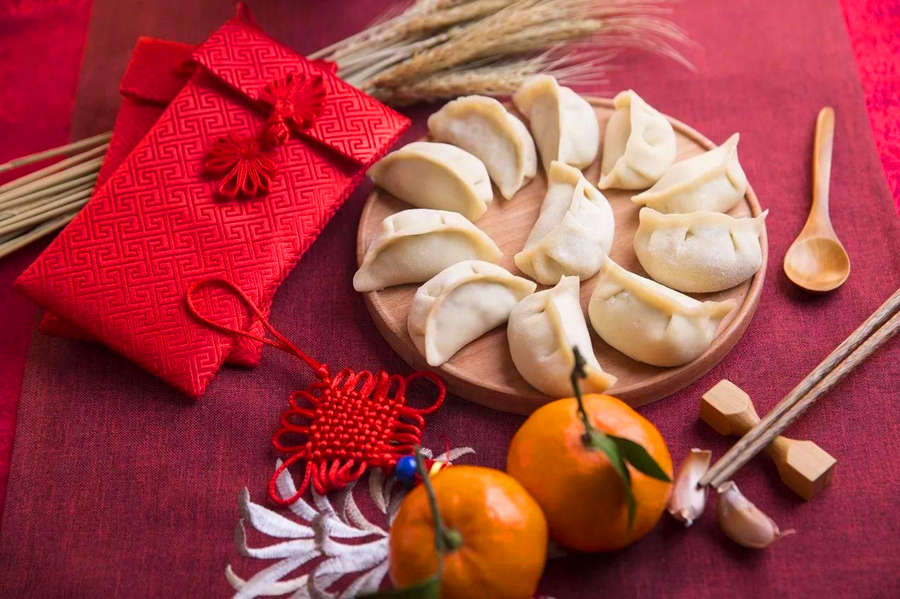The 24 Solar Terms
The 24 Solar Terms is the product of ancient Chinese farming civilization. Agricultural production was closely related to the rhythm of nature. The Solar Terms system was created by ancient Chinese ancestors who followed the agricultural season by observing the movement of celestial bodies and recognizing the changing rules of seasons, climate, phenology and other aspects in one year.
On November 30, 2016, "The Twenty-Four Solar Terms" of China was inscribed by UNESCO on the Representative List of the Intangible Cultural Heritage of Humanity.

The origin of 24 Solar Terms in China
After the long-term observation of movement of the Sun, Moon and Big Dipper, the ancient Chinese adopted a lunisolar calendar, which has been unique in the whole world. 24 segments were divided according to the sun’s annual circular motion. Each segment is spaced 15° apart along the ecliptic and has a specific ‘Solar Term’. The calendar system has played a fundamental role in an agricultural society like China in the past thousands of years.
Twenty-Four Solar Terms originated in the Yellow River reaches of North China, which were created based on the changes of seasons, astronomy and phenology in this region and has been progressively applied nationwide. The Solar Terms begin with the Start of Spring and ends with the Greater Cold, moving in cycles.
The twenty-four solar terms can be divided into three groups:
One group reflects the seasonal changes (including 8 terms): Start of Spring, Start of Summer, Start of Autumn and Start of Winter mark the four seasons; Spring Equinox, Summer Solstice, Autumn Equinox, and Winter Solstice reflect the height changes of the sun from the astronomy aspect.
One embodies natural phenomena (including 4 terms): Insects Awaken, Pure Brightness, Grain Full and Grain in Ear.
The rest reflects the climate changes (including 12 terms): Slight Heat, Great Heat, The End of Heat, Lesser Cold and Greater Cold tell the temperature changes; Rain Water, Grain Rain, Light Snow and Heavy Snow reflect the precipitation levels; White Dew, Cold Dew and Frost Descent reflect the dropping process and degree of the temperature.
The date of each solar term is basically fixed with minor differences of within one or two days. Each month has two solar terms.
The twenty-four solar terms are the product of ancient agricultural civilization, which occupies an extremely important position in the Chinese traditional culture. The knowledge has been passed down from generation to generation and used traditionally as a timeframe to direct farming production and daily routines. It remains of particular importance to farmers for guiding their practices. Common people also follow the calendar to watch out weather changes and live a healthy life.
The 24 Solar Terms Traditions
In the daily life, almost every solar term requests people to have relevant eating habits (food material and cooking style). Based on the twenty-four solar terms, rich health-preserving customs have also been formed, such as the beginning of spring to nourish the liver, the beginning of summer to replenish water, the beginning of autumn and winter to nourish Yin inside body. At the same time, a large number of stories, legends, poems and songs have also been created according to the knowledge system, which focus on expressing people's thoughts, emotions and spiritual sustenance. Therefore, for Chinese people, the twenty-four solar terms are not only a time system, but also a useful guide to life.
List of 24 Solar Terms in 2021
The 24 solar terms are based on the position of the sun on the regressive ecliptic, that is, the annual movement of the sun is divided into 24 equal parts, and each 15° is 1 equal part. The 24 solar terms is an important part of Chinese calendar.
| Sun's ecliptic longitude | Chinese name | Gregorian Date (± 1 day) | English name | Meanings | Corresponding Astrological Sign |
|---|---|---|---|---|---|
| 315° | 立春 lìchūn | Feb 4 | Start of Spring | The spring season begins. | Aquarius |
| 330° | 雨水 yǔshuǐ | Feb 19 | Rain Water | The amount of rainfall increases | Pisces |
| 345° | 惊蛰 jīngzhé | Mar 6 | Insects Awaken | Insects are awakening from winter sleep by the spring thunder. | Pisces |
| 0° | 春分 chūnfēn | Mar 21 | Spring Equinox | The mid-point for the spring season; Day and night are equally long on the day. | Aries |
| 15° | 清明 qīngmíng | Apr 5 | Pure Brightness | It is warm, bright and greener in Nature; It is also the time for tending graves. The Tomb Sweeping Festival is celebrated at that time. | Aries |
| 30° | 谷雨 gǔyǔ | Apr 20 | Grain Rain | Rainfall increases which is helpful to grain crops. | Taurus |
| 45° | 立夏 lìxià | May 6 | Start of Summer | The summer season begins. | Taurus |
| 60° | 小满 xiǎomǎn | May 21 | Grain Full | Grains are getting plump but not ripe yet. More rain in South China. | Gemini |
| 75° | 芒种 mángzhòng | Jun 6 | Grain in Ear | Wheat grows ripe marking the beginning of a busy farming season. | Gemini |
| 90° | 夏至 xiàzhì | Jun 21 | Summer Solstice | The sun altitude arrive the highest in north; It has the longest daytime of the year. | Cancer |
| 105° | 小暑xiǎoshǔ | Jul 7 | Slight Heat | The hottest days are yet to come. | Cancer |
| 120° | 大暑 dàshǔ | Jul 23 | Great Heat | The hottest time of a year. | Leo |
| 135° | 立秋 lìqiū | Aug 8 | Start of Autumn | The autumn season begins. | Leo |
| 150° | 处暑 chǔshǔ | Aug 23 | The End of Heat | The hot days come to an end. | Virgo |
| 165° | 白露 báilù | Sep 8 | White Dew | It is getting cooler and dewdrops appear on grass and trees in the morning. | Virgo |
| 180° | 秋分 qiūfēn | Sep 23 | Autumn Equinox | The mid-point for the autumn season; The temperature begins to decrease; Day and night are equally long on the day. | Libra |
| 195° | 寒露 hánlù | Oct 8 | Cold Dew | The dews are getting chilly. | Libra |
| 210° | 霜降 shuāngjiàng | Oct 23 | Frost Descent | Frost appears and the temperature begins to descent. | Scorpio |
| 225° | 立冬 lìdōng | Nov 7 | Start of Winter | The winter season begins. | Scorpio |
| 240° | 小雪 xiǎoxuě | Nov 22 | Light Snow | It begins to snow, but no accumulation. | Sagittarius |
| 255° | 大雪dàxuě | Dec 7 | Heavy Snow | Heavier snow in these days | Sagittarius |
| 270° | 冬至 dōngzhì | Dec 22 | Winter Solstice | It has the shortest daytime of a year; After the day, many places in China enter the coldest period of a year; Chinese dumplings are popular in North China, and stuffed sticky rice balls in the South. | Capricorn |
| 285° | 小寒 xiǎohán | Jan 6 | Lesser Cold | It is getting colder, the precursor of the coldest days. | Capricorn |
| 300° | 大寒dàhán | Jan 20 | Greater Cold | The coldest time of a year. | Aquarius |
Related Reading


